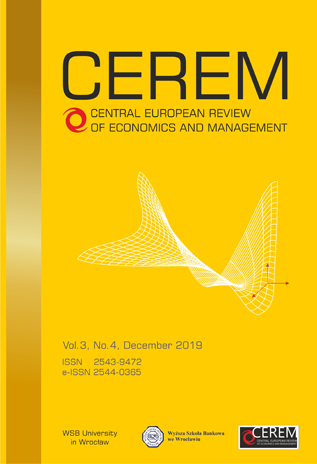Teaching and mindsets regarding sustainable development – a Mexican case study
DOI:
https://doi.org/10.29015/cerem.860Abstrakt
Aim: The world has become increasingly interconnected and complex. This represents a very serious problem for sustainable development; therefore, the development of instruments that reduces ignorance as well as fragilities are required, this with the intention of being prepared to deal with unexpected events that can threaten sustainability. In this context, universities emerges as a key player since they have the responsibility to lead society towards a sustainable future through the generation of professionals, managers and decision makers which play significant roles in national and global economies; however, it seems that the talent and human resources that are being generated lack the capacity to face these complex problems. This research aims to identify if teaching interventions, applied to engineering students, produces changes on students perception about business sustainability and sustainable development and, as consequence, identify if the creation of necessary cognitive capabilities for the solution of complex problems that can lead us to collapse scenarios can be produced on students.
Design / Research methods: Questionnaires were applied in a Mexican university. The experiment consists of three phases: (1) a pre-test (n=337), (2) intervention and (3) a post-test (n=329) to see the differences after the interventions. Analysis has been carried out based in hypothesis testing through z-test in order to identify significative changes among the two samples.
Conclusions / findings: Changes in the students' perception were observed. This means that the conditions for teaching sustainable development and sustainable business in this case of study can potentially contribute to creating in students the cognitive capabilities necessary to contribute to business sustainability. The results must be threated carefully; nevertheless, they provide the basis for further research.
Originality / value of the article: This paper makes substantial and original contributions to knowledge in the field through empirical approach; provide a unique and explorative perspective of the situation of current conditions for teaching sustainable development and sustainable business and presents potential contributions in to the creation of students with the awareness and capacities to solve the complex problems of sustainable development
Pobrania
Opublikowane
Numer
Dział
Licencja
Autor przenosi nieodpłatnie na Wyższą Szkołę Bankową we Wrocławiu , bez ograniczeń terytorialnych, majątkowe prawa autorskie do tego utworu w rozumieniu ustawy z dnia 4 lutego 1994 roku o prawie autorskim i prawach pokrewnych ( Dz.U. 1994, Nr 24, poz. 83 ze zm. )na zasadzie wyłączności, tj. prawo do:
a) wyłącznego używania i wykorzystania utworu w dowolnej działalności przez Wyższą Szkołę Bankową we Wrocławiu, w szczególności w działalność Biblioteki Cyfrowej uruchomionej przez Wyższą Szkołę Bankową we Wrocławiu
b) wytwarzania, utrwalania i zwielokrotniania egzemplarzy utworów wszelkimi technikami, w tym techniką drukarską, reprograficzną, zapisu magnetycznego oraz techniką cyfrową, w szczególności ich zwielokrotniania poprzez dokonywanie zapisów na płytach typu CD,
c) zamieszczenia wybranych fragmentów utworu w celach promocyjnych w publikacjach, materiałach promocyjnych, w sieci Internet oraz sieciach wewnętrznych typu Intranet Wyższej Szkoły Bankowej we Wrocławiu,
d) wprowadzania utworu do pamięci komputera Wyższej Szkoły Bankowej we Wrocławiu,
e) kopiowania i powielania utworu w technologiach fotomechanicznych lub innych znanych w dniu zawarcia umowy (fotokopie, kserokopie itp.),
f) przetworzenia dzieła na formę elektroniczną i nieograniczonego rozpowszechniania w sieci Internet.


